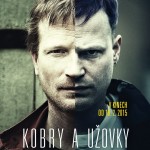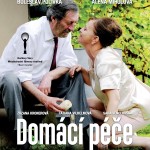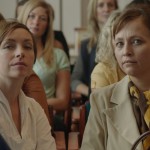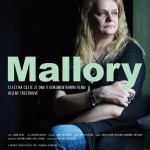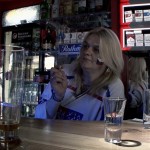After several not exactly stellar years, Czech cinema seems to have emerged from hibernation, as displayed in the last Karlovy Vary festival. “Dramedies” such as Kobry a Užovky and Domácí péče, as well as the documentary Mallory, promise to bring international success back to Czech cinema
It would really be a challenge to come up with a list of Czech films that have made an impact internationally in the past fifteen years, given that there have been so few which have really left their mark across the border.
The times when the Czech films used to arouse strong emotions in audiences, or win awards at international festivals seem far away. For the last Czech film to be nominated for an Oscar for Best Foreign Film we have to go back to 2003, the year of the captivating historical film “Želary”, directed by Ondřej Trojan.
However, judging from the titles presented at the Karlovy Vary festival this year, the national film industry seems to have been revitalized again by the release of a number of original and engaging films.
We refer particularly to “Kobry a užovky” by Jan Prušinovský, starring the two best known brothers currently appearing on Czech big screens, Matěj and Kryštof Hádek, a “dramedy” focused on the troubled relationship between the two brothers. However, it is necessary also to mention Domácí péče, from debut director Slávek Horák, and Mallory, a documentary, directed by Helena Třeštíková. All three won major awards at Karlovy Vary, and we must highlight the unusually large Czech presence among the winners of the most important film event in Central Europe. This too, is a fact which bodes well.
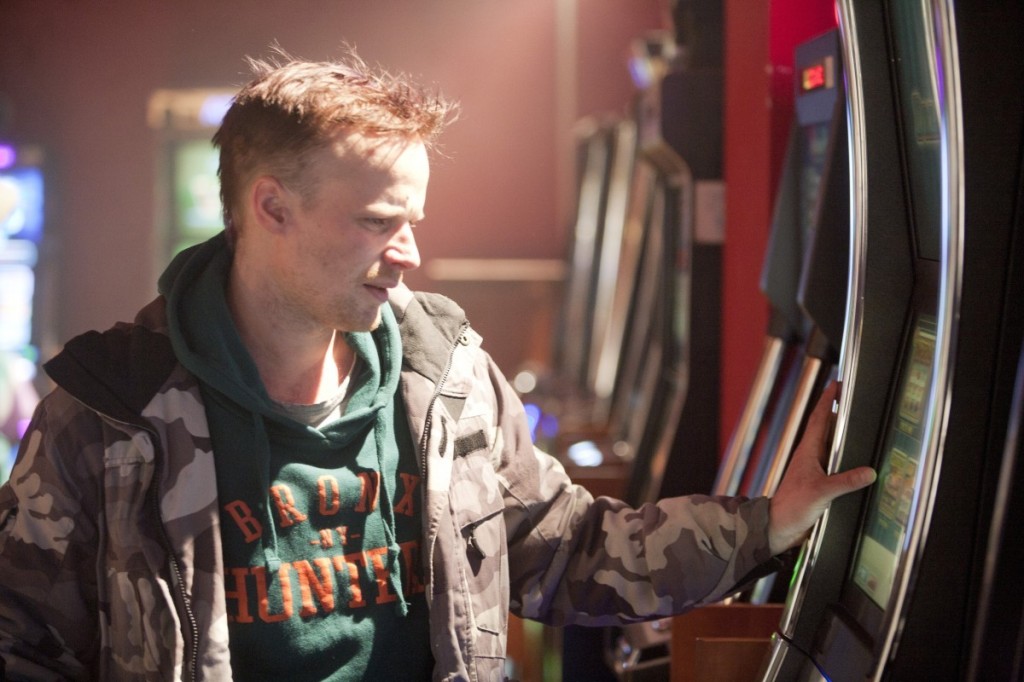 Among the three works awarded, was Domácí péče, distributed internationally under the title of Home Care, which could be considered the least significant. Yet alongside Kobry a užovky, it is a return to a genre in which the Czechs have always had a winning approach, the “dramedy”, a feature film with a balance of comedic and dramatic elements, which the classics of Jiří Menzel and more recently Jan Svěrák made famous. However, comparisons with the works of the aforementioned filmmakers do not end there. The first film from Slávek Horák, born in 1975 in Zlín, is also notable for the setting. Having been shot mainly in Napajedla, a town in Southern Moravia in the Zlín region, it represents a return to the almost “hrabalian” portraits of the daily life of Czech villages, the sweet life of the Czech small town that filmmakers of the past had chosen as a backdrop for numerous memorable works. Its strong point is undoubtedly the performance from the protagonist, wonderfully played by Alena Mihulová, winner of the best actress prize at Karlovy Vary for her portrayal of Vlasta, a middle-aged woman coming to terms with an unexpected illness, and despite her years as a carer of people who have found themselves in similar predicaments, she struggles to find stability in her life. With a disinterested husband, played by Bolek Polívka, who brings just the right dose of humour to the role, and a daughter with whom she is rarely in touch, Vlasta is forced to search for a way to find peace in her soul alone, attending dance classes with Mlada (Tatiana Vilhelmová) and sessions with a Slovak guru. Horák, who up to this film had only directed commercials, based the plot and the script on the experience of his mother as a caregiver to tell this story of a woman’s journey of self-discovery.
Among the three works awarded, was Domácí péče, distributed internationally under the title of Home Care, which could be considered the least significant. Yet alongside Kobry a užovky, it is a return to a genre in which the Czechs have always had a winning approach, the “dramedy”, a feature film with a balance of comedic and dramatic elements, which the classics of Jiří Menzel and more recently Jan Svěrák made famous. However, comparisons with the works of the aforementioned filmmakers do not end there. The first film from Slávek Horák, born in 1975 in Zlín, is also notable for the setting. Having been shot mainly in Napajedla, a town in Southern Moravia in the Zlín region, it represents a return to the almost “hrabalian” portraits of the daily life of Czech villages, the sweet life of the Czech small town that filmmakers of the past had chosen as a backdrop for numerous memorable works. Its strong point is undoubtedly the performance from the protagonist, wonderfully played by Alena Mihulová, winner of the best actress prize at Karlovy Vary for her portrayal of Vlasta, a middle-aged woman coming to terms with an unexpected illness, and despite her years as a carer of people who have found themselves in similar predicaments, she struggles to find stability in her life. With a disinterested husband, played by Bolek Polívka, who brings just the right dose of humour to the role, and a daughter with whom she is rarely in touch, Vlasta is forced to search for a way to find peace in her soul alone, attending dance classes with Mlada (Tatiana Vilhelmová) and sessions with a Slovak guru. Horák, who up to this film had only directed commercials, based the plot and the script on the experience of his mother as a caregiver to tell this story of a woman’s journey of self-discovery.
The film touches upon themes such as religion, medicine and the relationship between body and soul, but they are all undoubtedly oversimplified; the director incorporates all these elements in the film but never go below the surface. If there is something that saves the film it is the touches of biting humour, often provided by Polívka, though there are also moments of black humour such as a scene where Vlasta falls in a grave while we see a procession approaching. If the dramatic part does not fully function, it is the comedy that keeps the film afloat, along with the viewer’s attention.
If Domácí péče is only partially successful, Kobry a užovky, which will be distributed internationally under the title The Snake Brothers, is a work that hits almost all its targets. Set in a Bohemian town (Kralupy nad Vltavou in the district of Mělník), the film by Jan Prušinovský, a director best known for his work for Czech television, could be considered a realistic drama with comic elements, but with an authenticity rarely seen in recent Czech feature films. This is also due to the masterful interpretations of the two Hádek brothers, appearing together for the first time on the screen, which they animate with their portrayal of a complicated fraternal relationship. It was mainly the younger brother, Kryštof, who was in the spotlight, earning the Best Actor award at Karlovy Vary for his portrayal of “Kobra”, a drug addict constantly ending up in trouble with the law, while his older brother “Viper” (Matěj Hádek) bails him out of trouble. Viper however, a heavy drinker, tired of always having to get Kobra out of trouble, receives a potentially great business opportunity that can greatly improve his life. When the infringements of the brother begin to cast a shadow on what he does, Viper is forced to make decisions that will mark the fate of the family, becoming more and more torn between his brotherly duties and his career aspirations.
There is no denying the fact that Kryštof steals the show from the first scene where we see him walking around in broad daylight with a pair of gigantic bolt cutters, which he uses to break open doors and enter homes to steal whatever he can find. He is the funnier and showier character, who gives a soul to the film. That said, Matěj Hádek (born in 1975) is no less impressive. Since his participation in the rather awful Pohádkář, no more than a business card for Eva Herzigová, Hádek has been rejuvenated with his role as Jan Hus for television and now with this little gem, in which he delivers an excellent dramatic performance. Kobry a užovky enjoyed great success even with foreign audiences in Karlovy Vary, despite the subtitles which heavily watered down the colourful, vulgar language of Kobra which entertained Czech audiences so much. Perhaps the only misstep could be a final act which did not fit or match the rest of the film, but the work of Prušinovský shows vitality unseen in Czech cinema for quite some time.
If the accolades received for these films are not enough to convince the cynics that there is a new wave of talent in the film industry, we must not forget that even the Crystal Globe for Best Documentary at Karlovy Vary was won by a Czech title. The work in question is Mallory from Helena Třeštíková, a powerful film that gives a voice to the homeless in Prague. It focuses on the title character, and follows her extraordinary journey from being a former heroin addict to a homeless mother who is fighting for a better life. The film depicts the struggle of the protagonist without demanding pity, and shows that even in the most desperate lives it is worth aspiring and fighting for a better life. Mallory was the icing on the cake in a festival that promises much for the future of Czech cinema, ready to change the minds of those who had decided to turn their backs to it.
by Lawrence Formisano





